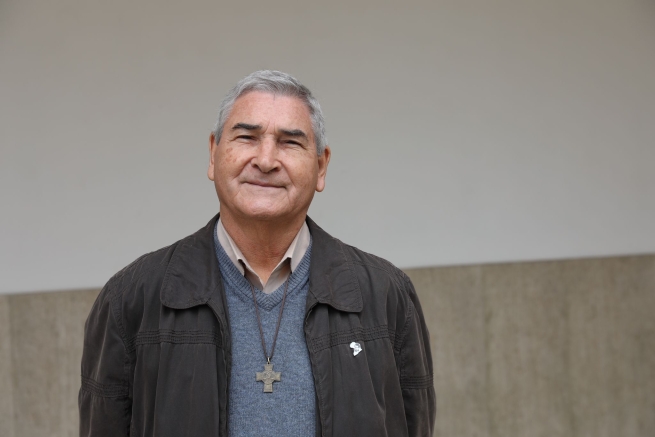“I was born into a deeply Christian family, the eighth of nine siblings. Of us children, in addition to me, a Salesian, one has become a Franciscan and another a Carmelite", he begins by presenting the variety of charisms that has enriched his family. "My first contact with the Salesians was through one of my older brothers, who studied at the Salesian Inmaculada Conceicão school in Porto and, when he returned home for the holidays, brought magazines and books about the Salesian Congregation and its activities, which intrigued me a lot."
Thanks to the "good press" strongly desired by Don Bosco, therefore, a first vocational restlessness arose, and in 1961 he entered the Salesian aspirantate to begin a path that continues today. In 1965 he made his first religious profession, and was ordained a priest in 1981. He had his first experience abroad during his initial formation, travelling to the Far East, in Macau, where he stayed for two years.
Back home, in his early years as a Salesian priest he continued preparing to teach Literature in schools. He was a teacher and followed the scouts.
The desire to go on missions had the opportunity to materialise when religious works in Mozambique were returned to the Church, since they had previously been requisitioned by the communist regime. Thus, when the local bishops asked the Salesians to return to the country, in 1983 Fr Lourenço was among the first three pioneers to replant Don Bosco's seed in Mozambican soil.
"We were going to start all the work left before" he says today "But when we got there we found that everything had been destroyed. So we had to start the work from another part of the country." They therefore divided the work: the other two tried to recover one work, while Fr Lourenço tried to found another in Maputo.
Then, after the Salesians had settled in Mozambique, he was asked to go to Moatize, "a very hot place where there was so much poverty. Even the resources were few and we had to use the same facilities for masses, meetings and lessons", he says.
Despite the pioneering action of the founder of the works, Fr Lourenço spent his life as a Salesian in a rather simple way, always working in parishes and in formation. And, ironically, for a religious who has carried out his entire mission in a country with the same language as his native land, the greatest challenge has been in learning languages: local ones, spoken by the majority of the population of rural villages.
“Understanding the local language and culture has always been the biggest challenge for me. Ronga was spoken in Maputo, it was not easy to understand, for confessions... Unlike the Comboni Missionaries, active near us and who dedicated at least a year to the study of the language, we Salesians were immediately catapulted into the middle of the many things to do, without having time to study." Today this approach has been appropriately revised, but Fr Lourenço was still able to face this challenge, so much so that he was able to celebrate Mass in the local languages.
Currently his work is close to Maputo, in "a city that is part industrial and part dormitory". He takes care of the formation of the 15 students of Philosophy, and is Rector of the formation community.
With his long and varied experience, Fr Lourenço does not miss the opportunity to launch a healthy missionary provocation to young people and to those in search of their vocation. “My spiritual vision of my missionary vocation has always been based on a certainty and a question, which I believe also applies to others: God needs me. If I don't go, who will?”



